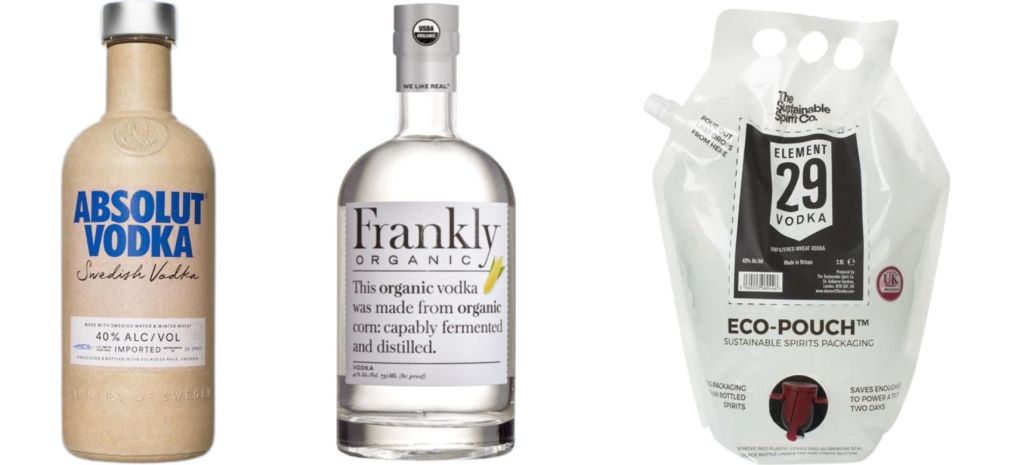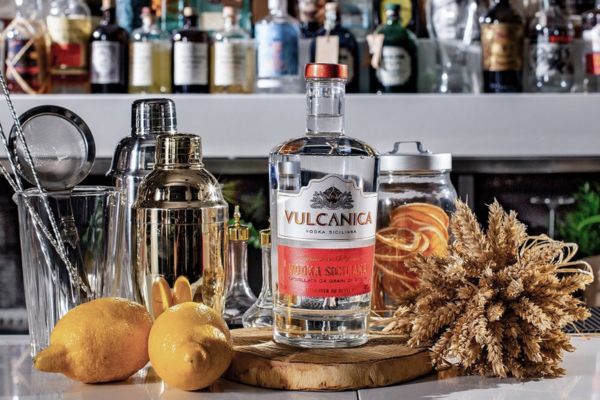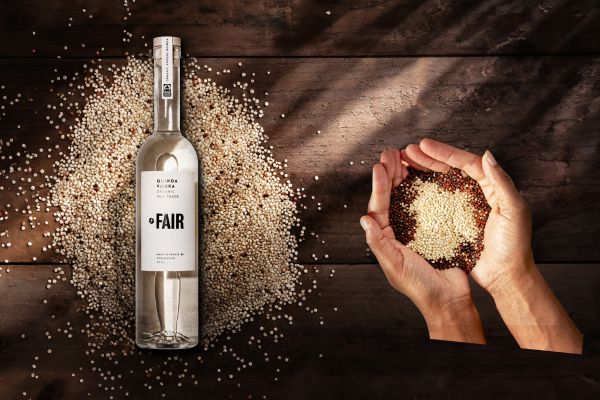
15/07/2024 Embracing Eco-Friendly and Ethical Practices in the Vodka Industry
In recent years, the vodka industry has seen a significant shift towards sustainability and ethical production. As consumers become more aware of environmental issues and social responsibility, vodka brands are stepping up to meet the demand for eco-friendly and ethically produced spirits. This article explores the key trends and practices that are driving this transformation in the vodka industry.
Sustainable Sourcing of Ingredients
One of the fundamental aspects of sustainable vodka production is the sourcing of ingredients. Many vodka brands are now prioritizing the use of organic and locally sourced grains, potatoes, and other raw materials. This not only reduces the carbon footprint associated with transportation but also supports local farmers and promotes biodiversity. By choosing non-GMO and pesticide-free ingredients, these brands are ensuring that their products are healthier for consumers and better for the planet.
Water Conservation and Waste Reduction
Water is a crucial component in vodka production, and conserving this precious resource is a top priority for sustainable distilleries. Advanced water recycling systems and efficient distillation processes are being implemented to minimize water usage. Additionally, many distilleries are exploring ways to reduce waste by repurposing by-products from the production process. For instance, spent grains can be used as animal feed or converted into bioenergy, thus closing the loop on waste.
Renewable Energy and Carbon Neutrality
To reduce their environmental impact, vodka producers are increasingly investing in renewable energy sources such as solar and wind power. Some brands are even achieving carbon neutrality by offsetting their emissions through various initiatives like reforestation projects and carbon credits. By harnessing clean energy and minimizing their carbon footprint, these distilleries are leading the way in sustainable production practices.
Ethical Labor Practices
Sustainability in vodka production extends beyond environmental concerns to include social responsibility. Ethical labor practices are becoming a focal point for many brands, ensuring fair wages, safe working conditions, and opportunities for local communities. Transparency in the supply chain and third-party certifications, such as Fair Trade, are helping consumers make informed choices about the brands they support.
Eco-Friendly Packaging
Packaging is another area where vodka brands are making strides towards sustainability. The use of recycled and biodegradable materials for bottles, labels, and packaging is becoming more common. Innovative designs that reduce material usage and improve recyclability are also being introduced. Some brands are even experimenting with alternative packaging solutions, such as refillable bottles and bulk purchasing options, to minimize waste.
Community Engagement and Education
Vodka brands are not only implementing sustainable practices within their operations but also engaging with their communities to promote sustainability. Educational campaigns, partnerships with environmental organizations, and community projects are ways in which these brands are raising awareness about sustainability issues. By fostering a culture of environmental stewardship, they are encouraging consumers and industry peers to adopt more sustainable practices.
Consumer Influence
The shift towards sustainability and ethical production in the vodka industry is largely driven by consumer demand. Today’s consumers are more informed and conscientious about their purchasing decisions. They are seeking products that align with their values and are willing to support brands that prioritize sustainability. This growing consumer preference is pushing more vodka producers to adopt eco-friendly and ethical practices, creating a positive feedback loop that benefits both the industry and the environment.
Sustainability and ethical production are no longer just buzzwords in the vodka industry; they are becoming standard practices. From sustainable sourcing and water conservation to renewable energy and ethical labor practices, vodka brands are making significant strides towards a more sustainable future. As consumers continue to prioritize sustainability, the industry is likely to see even more innovation and commitment to ethical production in the years to come. By embracing these principles, the vodka industry is not only contributing to a healthier planet but also building a more responsible and resilient future.
Here are some notable brands that are leading the way:
1. Belvedere Vodka
- Sustainability Initiatives: Belvedere Vodka has implemented several sustainable practices, including using 100% organic rye and sourcing water locally. They have also invested in renewable energy sources and have committed to reducing their carbon footprint by 80% by 2022.
- Ethical Production: Belvedere ensures ethical production by maintaining transparency in their supply chain and adhering to strict quality control measures.

2. Vulcanica Vodka
- Sustainability Initiatives: Vulcanica Vodka is produced using Sicilian grains grown in the fertile ash of Mount Etna, a UNESCO World Heritage site. The brand leverages the natural resources of the region while ensuring minimal environmental impact.
- Ethical Production: The production process of Vulcanica Vodka emphasizes ethical practices, including fair treatment of workers and sustainable farming methods.

3. Absolut Vodka
- Sustainability Initiatives: Absolut Vodka has made significant strides in sustainability, including using locally sourced winter wheat and water from a deep well in Åhus, Sweden. They have also achieved carbon neutrality in their production process and aim for zero waste.
- Ethical Production: Absolut maintains high ethical standards, ensuring fair labor practices and supporting local communities through various initiatives.
4. Ketel One Vodka
- Sustainability Initiatives: Ketel One is committed to sustainability through their use of non-GMO grains and their "Ketel One Botanical" range, which uses natural ingredients and no artificial flavors. The brand has also invested in reducing its water usage and energy consumption.
- Ethical Production: Ketel One upholds ethical production by promoting responsible sourcing and maintaining a transparent supply chain.
5. Prairie Organic Vodka
- Sustainability Initiatives: Prairie Organic Vodka is produced using organic corn grown by family farmers in the Midwest. The brand is committed to sustainable agriculture and practices organic farming methods.
- Ethical Production: Prairie Organic ensures ethical production by supporting local farmers and adhering to organic certification standards, which prohibit the use of synthetic pesticides and fertilizers.

6. Fair Vodka
- Sustainability Initiatives: Fair Vodka is made from organic quinoa sourced from fair trade cooperatives in the Andes. The production process emphasizes sustainability through the use of renewable energy and water conservation techniques.
- Ethical Production: As the name suggests, Fair Vodka prioritizes fair trade practices, ensuring that farmers receive fair wages and work in safe conditions.

Conclusion
The vodka industry is increasingly recognizing the importance of sustainability and ethical production. Brands like Belvedere, Vulcanica, Absolut, Ketel One, Prairie Organic, and Fair Vodka are setting the standard by implementing environmentally friendly practices and ensuring ethical treatment of workers. As consumer demand for sustainable and ethically produced spirits grows, these brands are not only leading by example but also paving the way for a more responsible and transparent vodka industry.



